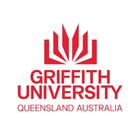Master of Professional Accounting
- publicado por Griffith University
- Home
- Courses
- Griffith University
- Master of Professional Accounting
Master of Professional Accounting
If you are from a non-accounting background, the Master of Professional Accounting conversion program will give you the training in accounting and related areas needed to meet the academic requirements for Associate membership with CPA Australia and admission to CPA Australia’s CPA Program, and the CA Program of Chartered Accountants…
Categories
COURSE DESCRIPTION
If you are from a non-accounting background, the Master of Professional Accounting conversion program will give you the training in accounting and related areas needed to meet the academic requirements for Associate membership with CPA Australia and admission to CPA Australia’s CPA Program, and the CA Program of Chartered Accountants Australia and New Zealand.
This program will enable you to develop the technical and conceptual skills needed to become an accountant and will develop your ability to analyse, critique and synthesise various accounting and related principles, methods and techniques. This program will also provide academic support to help you prepare for CPA Australia’s CPA Program and ACCA’s professional level examinations.
My career opportunities
You will be qualified for work in government administration, business planning, cost and management accounting, auditing, information systems, taxation, finance and banking, stockbroking, treasury, foreign exchange, superannuation, consulting, insurance, and manufacturing.
REQUIREMENTS
To be eligible for admission to the Master of Professional Accounting, a student must: hold any Bachelor degree from a recognised University (or another tertiary education institution of equivalent standing) with a minimum GPA 4.0 (using a 7.0 scale), OR hold a Griffith Graduate Certificate in Professional Accounting (or equivalent) with a minimum GPA of 4.0 (using a 7.0 scale). Students with a Griffith Graduate Certificate in Professional Accounting will receive 40 credit points of credit.
English language requirements apply to International applicants and other applicants whose previous study was undertaken in a language other than English. The minimum English language requirements for such applicants for entry to this program are as follows:
- A minimum overall band score of 6.5 on IELTS (Academic) with no sub-score of less than 6.0
- OR a minimum score of 575 on TOEFL
- OR an internet-based (iBT) TOEFL score of 79 (no sub-score less than 19)
- OR no score less than 3+ in each skill of the ISLPR (conducted by ISLPR Language Services only)
- OR a minimum overall score of 176 (no score less than 169) on C1 Advanced (formerly Cambridge Certificate in Advanced English) or C2 Proficiency (formerly Cambridge Certificate of Proficiency in English)
- OR an overall score of 58 in the Pearson Test of English (Academic) with no score less than 50.
EDUCATIONAL INSTITUTION
Griffith University is ranked in the top 2% of universities worldwide and strives to create a brighter future for all by prioritising innovation and social impact. We are committed to providing international students with quality education, guidance, and support. With Australia’s most awarded teachers, Griffith University offers a full suite of undergraduate, postgraduate and research degrees in areas including architecture, construction, and planning; business and government; criminology and law; education; engineering, IT and aviation; humanities, languages and social science; medicine, dentistry and health; music and performing arts; science and environment; visual and creative arts.
Griffith University is ranked in the top 2% of universities worldwide and strives to create a brighter future for all by prioritising innovation and social impact. We are committed to providing international students with quality education, guidance, and support.
With Australia’s most awarded teachers, Griffith University offers a full suite of undergraduate, postgraduate and research degrees in areas including architecture, construction, and planning; business and government; criminology and law; education; engineering, IT and aviation; humanities, languages and social science; medicine, dentistry and health; music and performing arts; science and environment; visual and creative arts.

